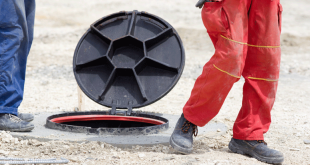Plumbing issues are an inevitable part of homeownership. From minor leaks to major pipe bursts, knowing how to handle common plumbing problems can save you time, money, and stress. This comprehensive guide provides essential plumbing tips every homeowner should know to maintain a smoothly functioning plumbing system and avoid costly repairs.
Basic Plumbing Tips
1. Regular Maintenance
Regular maintenance is crucial for preventing plumbing problems. Check your plumbing system periodically for signs of wear and tear, such as leaks, rust, or corrosion. Addressing minor issues early can prevent them from becoming major problems.
2. Know the Location of Your Main Water Valve
In case of a plumbing emergency, such as a burst pipe, knowing the location of your main water valve can save your home from significant water damage. Ensure everyone in your household knows where it is and how to turn it off.
3. Avoid Chemical Drain Cleaners
Chemical drain cleaners can cause more harm than good. They can corrode your pipes and cause long-term damage. Instead, use a plunger or a drain snake to clear clogs, or consider natural alternatives like baking soda and vinegar.
4. Insulate Your Pipes
Insulating your pipes can prevent them from freezing during cold weather. Frozen pipes can burst and cause extensive water damage. Use pipe insulation sleeves or heat tape to protect your pipes, especially those in unheated areas.
Kitchen Plumbing Tips
1. Be Careful What You Put Down the Sink
Avoid putting grease, oil, coffee grounds, and food scraps down the sink, even if you have a garbage disposal. These substances can build up and cause clogs. Instead, dispose of them in the trash or compost.
2. Clean Your Garbage Disposal Regularly
To keep your garbage disposal in good working order, clean it regularly. Use ice cubes and salt to remove debris and odors. You can also grind citrus peels to freshen it up.
3. Check for Leaks Under the Sink
Periodically check for leaks under your kitchen sink. Even a small leak can lead to mold growth and damage to your cabinetry. Tighten any loose connections and replace worn-out washers or gaskets.
Bathroom Plumbing Tips
1. Prevent Clogged Drains
Hair, soap scum, and other debris can cause bathroom drains to clog. Use drain covers to catch hair and other particles, and clean them regularly. Additionally, avoid flushing anything other than toilet paper down the toilet.
2. Fix Running Toilets
A running toilet can waste a significant amount of water and increase your utility bill. Common causes include a faulty flapper, a misaligned float, or a worn-out fill valve. Replacing these parts is usually inexpensive and can save water.
3. Address Low Water Pressure
Low water pressure in your shower or sink can be caused by mineral buildup in the aerator or showerhead. Remove the aerator or showerhead and soak it in vinegar overnight to dissolve the deposits. If the problem persists, it may be due to a larger issue in your plumbing system.
Outdoor Plumbing Tips
1. Disconnect and Store Garden Hoses
Before the first frost, disconnect and store your garden hoses. This prevents water from freezing inside the hoses and causing them to burst. Also, drain any remaining water from outdoor faucets.
2. Inspect Outdoor Faucets and Sprinklers
Inspect your outdoor faucets and sprinkler systems for leaks or damage. Repair any issues promptly to avoid water wastage and potential damage to your home’s foundation.
3. Clean Gutters and Downspouts
Ensure your gutters and downspouts are clean and free of debris. Clogged gutters can cause water to overflow and damage your roof, siding, and foundation. Regular cleaning helps maintain proper drainage.
Emergency Plumbing Tips
1. Keep a Plunger Handy
A plunger is an essential tool for any homeowner. It can help you quickly resolve clogs in toilets, sinks, and tubs. Ensure you have a plunger for both your toilets and sinks.
2. Know How to Shut Off Water Supply to Appliances
Knowing how to shut off the water supply to appliances like washing machines, dishwashers, and water heaters can prevent major flooding in case of a malfunction. Familiarize yourself with the location and operation of these shut-off valves.
3. Have Emergency Contact Information Ready
Keep contact information for a reliable plumber readily available. In case of a plumbing emergency, having a professional you can call quickly can make a significant difference in mitigating damage.
Plumbing issues are an inevitable part of homeownership. From minor leaks to major pipe bursts, knowing how to handle common plumbing problems can save you time, money, and stress. This comprehensive guide provides essential plumbing tips every homeowner should know to maintain a smoothly functioning plumbing system and avoid costly repairs.
Basic Plumbing Tips
1. Regular Maintenance
Regular maintenance is crucial for preventing plumbing problems. Check your plumbing system periodically for signs of wear and tear, such as leaks, rust, or corrosion. Addressing minor issues early can prevent them from becoming major problems.
2. Know the Location of Your Main Water Valve
In case of a plumbing emergency, such as a burst pipe, knowing the location of your main water valve can save your home from significant water damage. Ensure everyone in your household knows where it is and how to turn it off.
3. Avoid Chemical Drain Cleaners
Chemical drain cleaners can cause more harm than good. They can corrode your pipes and cause long-term damage. Instead, use a plunger or a drain snake to clear clogs, or consider natural alternatives like baking soda and vinegar.
4. Insulate Your Pipes
Insulating your pipes can prevent them from freezing during cold weather. Frozen pipes can burst and cause extensive water damage. Use pipe insulation sleeves or heat tape to protect your pipes, especially those in unheated areas.
Kitchen Plumbing Tips
1. Be Careful What You Put Down the Sink
Avoid putting grease, oil, coffee grounds, and food scraps down the sink, even if you have a garbage disposal. These substances can build up and cause clogs. Instead, dispose of them in the trash or compost.
2. Clean Your Garbage Disposal Regularly
To keep your garbage disposal in good working order, clean it regularly. Use ice cubes and salt to remove debris and odors. You can also grind citrus peels to freshen it up.
3. Check for Leaks Under the Sink
Periodically check for leaks under your kitchen sink. Even a small leak can lead to mold growth and damage to your cabinetry. Tighten any loose connections and replace worn-out washers or gaskets.
Bathroom Plumbing Tips
1. Prevent Clogged Drains
Hair, soap scum, and other debris can cause bathroom drains to clog. Use drain covers to catch hair and other particles, and clean them regularly. Additionally, avoid flushing anything other than toilet paper down the toilet.
2. Fix Running Toilets
A running toilet can waste a significant amount of water and increase your utility bill. Common causes include a faulty flapper, a misaligned float, or a worn-out fill valve. Replacing these parts is usually inexpensive and can save water.
3. Address Low Water Pressure
Low water pressure in your shower or sink can be caused by mineral buildup in the aerator or showerhead. Remove the aerator or showerhead and soak it in vinegar overnight to dissolve the deposits. If the problem persists, it may be due to a larger issue in your plumbing system.
Outdoor Plumbing Tips
1. Disconnect and Store Garden Hoses
Before the first frost, disconnect and store your garden hoses. This prevents water from freezing inside the hoses and causing them to burst. Also, drain any remaining water from outdoor faucets.
2. Inspect Outdoor Faucets and Sprinklers
Inspect your outdoor faucets and sprinkler systems for leaks or damage. Repair any issues promptly to avoid water wastage and potential damage to your home’s foundation.
3. Clean Gutters and Downspouts
Ensure your gutters and downspouts are clean and free of debris. Clogged gutters can cause water to overflow and damage your roof, siding, and foundation. Regular cleaning helps maintain proper drainage.
Emergency Plumbing Tips
1. Keep a Plunger Handy
A plunger is an essential tool for any homeowner. It can help you quickly resolve clogs in toilets, sinks, and tubs. Ensure you have a plunger for both your toilets and sinks.
2. Know How to Shut Off Water Supply to Appliances
Knowing how to shut off the water supply to appliances like washing machines, dishwashers, and water heaters can prevent major flooding in case of a malfunction. Familiarize yourself with the location and operation of these shut-off valves.
3. Have Emergency Contact Information Ready
Keep contact information for a reliable plumber readily available. In case of a plumbing emergency, having a professional you can call quickly can make a significant difference in mitigating damage.
Advanced Plumbing Tips
1. Install Water Softener
Hard water can cause mineral buildup in your pipes, reducing water flow and damaging your plumbing system. Installing a water softener can mitigate these issues by removing excess minerals from your water supply.
2. Upgrade to a Tankless Water Heater
Tankless water heaters provide hot water on demand, reducing energy consumption and providing a constant supply of hot water. They also have a longer lifespan compared to traditional tank water heaters.
3. Consider a Plumbing Inspection
Periodic professional plumbing inspections can identify potential issues before they become major problems. A plumber can check for hidden leaks, inspect pipe conditions, and ensure your plumbing system is functioning efficiently.
Eco-Friendly Plumbing Tips
1. Install Low-Flow Fixtures
Low-flow faucets, showerheads, and toilets can significantly reduce water usage without sacrificing performance. These fixtures are designed to conserve water, helping you save on utility bills and reduce your environmental impact.
2. Harvest Rainwater
Installing a rainwater harvesting system can provide an alternative water source for irrigation, reducing your dependence on municipal water supplies. This eco-friendly practice helps conserve water and lower your water bills.
3. Use Energy-Efficient Appliances
Energy-efficient appliances like dishwashers and washing machines use less water and energy. Look for appliances with the ENERGY STAR label, which indicates they meet energy efficiency guidelines set by the U.S. Environmental Protection Agency.
Conclusion
By following these essential plumbing tips, you can maintain a healthy plumbing system and prevent common problems. Regular maintenance, proper usage, and timely repairs are key to avoiding costly plumbing issues. For more complex problems or emergencies, don’t hesitate to contact a professional plumber.
 Daily Blogger News Stay updated with the latest trends and insights. Your reliable source for daily updates and information.
Daily Blogger News Stay updated with the latest trends and insights. Your reliable source for daily updates and information.







